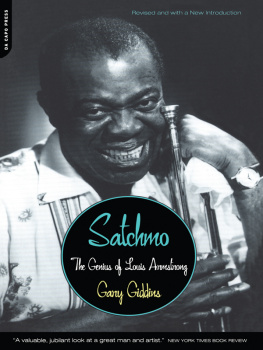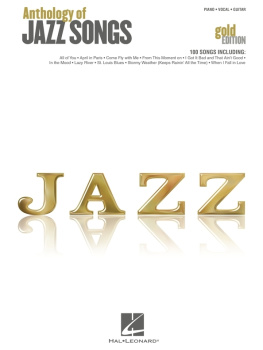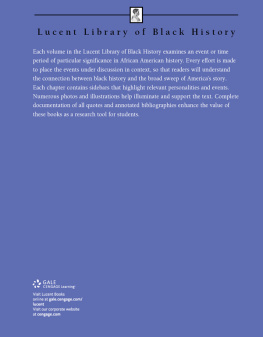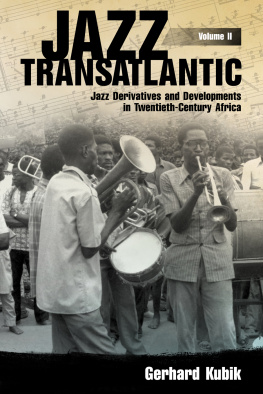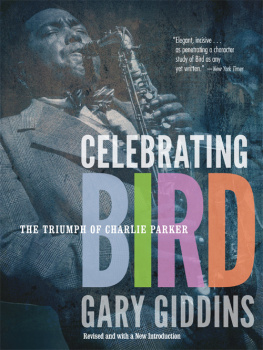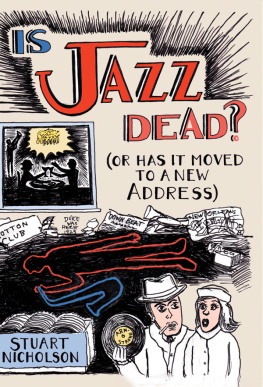Giddins - Weather bird: jazz at the dawn of its second century
Here you can read online Giddins - Weather bird: jazz at the dawn of its second century full text of the book (entire story) in english for free. Download pdf and epub, get meaning, cover and reviews about this ebook. City: New York;Oxford, year: 2005;2004, publisher: Oxford University Press, Incorporated, genre: Home and family. Description of the work, (preface) as well as reviews are available. Best literature library LitArk.com created for fans of good reading and offers a wide selection of genres:
Romance novel
Science fiction
Adventure
Detective
Science
History
Home and family
Prose
Art
Politics
Computer
Non-fiction
Religion
Business
Children
Humor
Choose a favorite category and find really read worthwhile books. Enjoy immersion in the world of imagination, feel the emotions of the characters or learn something new for yourself, make an fascinating discovery.

- Book:Weather bird: jazz at the dawn of its second century
- Author:
- Publisher:Oxford University Press, Incorporated
- Genre:
- Year:2005;2004
- City:New York;Oxford
- Rating:4 / 5
- Favourites:Add to favourites
- Your mark:
- 80
- 1
- 2
- 3
- 4
- 5
Weather bird: jazz at the dawn of its second century: summary, description and annotation
We offer to read an annotation, description, summary or preface (depends on what the author of the book "Weather bird: jazz at the dawn of its second century" wrote himself). If you haven't found the necessary information about the book — write in the comments, we will try to find it.
Giddins: author's other books
Who wrote Weather bird: jazz at the dawn of its second century? Find out the surname, the name of the author of the book and a list of all author's works by series.
Weather bird: jazz at the dawn of its second century — read online for free the complete book (whole text) full work
Below is the text of the book, divided by pages. System saving the place of the last page read, allows you to conveniently read the book "Weather bird: jazz at the dawn of its second century" online for free, without having to search again every time where you left off. Put a bookmark, and you can go to the page where you finished reading at any time.
Font size:
Interval:
Bookmark:
Books by Gary Giddins
Weather Bird (2004)
Bing Crosby: A Pocketful of Dreams (2001)
Visions of Jazz: The First Century (1998)
Faces in the Crowd (1992)
Satchmo (1988)
Celebrating Bird (1987)
Rhythm-a-ning (1985)
Riding on a Blue Note (1981)
JAZZ AT THE DAWN OF ITS
SECOND CENTURY
GARY GIDDINS


Oxford New York
Auckland Bangkok Buenos Aires Cape Town Chennai
Dares Salaam Delhi Hong Kong Istanbul Karachi Kolkata
Kuala Lumpur Madrid Melbourne Mexico City Mumbai Nairobi
Sao Paulo Shanghai Taipei Tokyo Toronto
Copyright 2004 by Gary Giddins
Published by Oxford University Press, Inc.
198 Madison Avenue, New York, New York, 10016
www.oup.com
Oxford is a registered trademark of Oxford University Press
All rights reserved. No part of this publication may be reproduced,
stored in a retrieval system, or transmitted, in any form or by any means,
electronic, mechanical, photocopying, recording, or otherwise,
without the prior permission of Oxford University Press.
Library of Congress Cataloging-in-Publication Data
Giddins, Gary.
Weather bird : jazz at the dawn of its second century
/Gary Giddins.
p. cm.
Includes index.
ISBN 0-19-515607-2
1. JazzHistory and criticism. 2. Performing arts. I. Title.
ML3507.G53 2004
781.65dc22 2004000654
1 3 5 7 9 8 6 4 2
Printed in the United States of America
on acid-free paper
FOR LEA, DEBORAH, AND ALICE
AND FOR ROBERT CHRISTGAU
AND IN MEMORY:
LESTER BOWLE
NICK BRIGNOLA
JAKI BYARD
BENNY CARTER
ROSEMARY CLOONEY
TOMMY FLANAGAN
JOHN LEWIS
BUDDY TATE
In bygone times a feeling for nobility was always maintained in the art of music, and all its elements skillfully retained the orderly beauty appropriate to them. Today, however, people take up music in a haphazard and irrational manner. The musicians of our day set as their goal success with their audiences.
Athenaeus, The Learned Banquet (c. 200 C.E)
Music awakens time, awakens us to the finest enjoyment of time; music awakensand thus has moral value. Art has moral value, in that it awakens. But what if it does the opposite? What if it dulls us, puts us to sleep, opposes all action and progress? Music can do that too; it knows very well the power of opiates. A gift of the Devil, my dear sirs; opiates make for lethargy, inflexibility, stagnation, slavish inertia. There is something uncertain about music, gentlemen. I tell you that music is, by its very nature, equivocal. I do not exaggerate when I insist that it is politically suspect.
Thomas Mann, The Magic Mountain
The shaking air rattled Lord Edwards membrana tympani; the interlocked malleus, incus and stirrup bones were set in motion so as to agitate the membrane of the oval window and raise an infinitesimal storm in the fluid of the labyrinth. The hairy endings of the auditory nerve shuddered like weeds in a rough sea; a vast number of obscure miracles were performed in the brain, and Lord Edward ecstatically whispered Bach!
Aldous Huxley, Point Counter Point
Anyone can make the simple complicated. Creativity is making the complicated simple.
Charles Mingus
Everybody has the blues. Everybody longs for meaning. Everybody needs to love and be loved. Everybody needs to clap hands and be happy. Everybody longs for faith. In music, especially this broad category called jazz, there is a stepping-stone to all of these.
Martin Luther King, Jr.
The sense of enlargement of life may be so uplifting that personal motives and inhibitions, commonly omnipotent, become too insignificant for notice, and new reaches of patience and fortitude open out. Fears and anxieties go, and blissful equanimity takes their place. Come heaven, come hell, it makes no difference now!
William James, The Varieties of Religious Experience
It is now 40 years since I found in Louis Armstrong specifically and in jazz in general a substitute for the God of my fathersthough I didnt realize it at the time. If, as William James argues, an authentic religious experience is one that permanently transforms, unlike, say, the cheap tickets to holiness provided by a variety of hallucinogens in my college years, then the Armstrong conversion seems to have held pretty well. It transfigured my adolescence and has governed most of what Ive made of my adulthood. Of course, the limits of my talent had something to do with this. I didnt abandon my childhood ambition of becoming Haw-thorne because I hooked onto something better. A writer will write and the only question is the subject. For a long time, I fought against criticism as a capitulation; sometimes, I fight still. But then I return to Armstrong and company and know Im right, or in any case still locked in the bonds of worship. The trouble with choosing your own god is that it chooses you in turn, and there you are, come heaven, come hell.
My parents home was not especially musical, beyond a few popular singers and bands: albums by Sinatra, Belafonte, Ted Heath, various chacha-cha and mambo ensembles with sexy covers. Yet as progressive Spockian suburbanites determined to raise the sights of their children, they also invested inalong with World Book Encyclopedia and an unabridged Webster, purchased in installmentstwo bulky Readers Digest anthologies of classical music. Inexplicably, that company declined to honor conductors: only in small print on the disc-labels could one find their names, from Sir Adrian Boult and Rene Leibowitz to the more obscure Massimo Freccia andunforgettable nameOdd Gruner-Hegge. The music did its job, however, despite its mostly negative connotations in my adolescent circles. I shut the door and merrily conducted the first Brandenburg, Mozarts G-minor symphony, Le Sacre du Printemps, the Eroica, Italian, and Pathetique symphonies. That habit and my inclination to memorize long passages led my parents to the sorry conclusion that I had a talent for music making when my true gift lay in record playing. Thus followed lessons on a succession of instruments until the most patient of instructors conceded that I was hopeless. My ability to read the bass clef paralleled that of a four-year-old confronted with Faulkner; as notes flew off the treble staff, I sheepishly intoned, Every good boy does fine.
Rock and roll soon entered the picture: Little Richard, Lloyd Price, Fats Domino, Ray Charles, Jackie Wilson, Dee Clark, the Coasters, Bobby Darin, Sammy Turner, the Five Satins, the Diamonds, the Shirelles, Buddy Holly, Bo Diddley, Bobby Day, Bobby Rydell, Chuck Berry, Jimmy Jones, Marv Johnson, Johnny and the Hurricanes, and U.S. Bonds, among many others. They racially integrated my world in a way the neighborhood, movies, and TV did not. My friends and I marveled that most of our favorites were Negroes, to us an unknown and estimable breedso dapper in their tailored tuxedos and high-swept conks. We debated which of them looked the coolest and wondered what they were like. The only Negroes we knew were women, deputized authority figures: maids, mothers helpersevery home had one. Where did they disappear to every Thursday, maids day off? Did they all go to Harlem? And what kind of place was Harlem that dispatched, dozens, perhaps hundreds of women to look after white households? What if our own mothers had to leave us to take care of Negro families? You dont read this sort of thing in Civil Rights histories, but that was the kind of conversation rife among twelve-year-olds in white upper-middle-class Long Island towns of the late50s and early60s.
Font size:
Interval:
Bookmark:
Similar books «Weather bird: jazz at the dawn of its second century»
Look at similar books to Weather bird: jazz at the dawn of its second century. We have selected literature similar in name and meaning in the hope of providing readers with more options to find new, interesting, not yet read works.
Discussion, reviews of the book Weather bird: jazz at the dawn of its second century and just readers' own opinions. Leave your comments, write what you think about the work, its meaning or the main characters. Specify what exactly you liked and what you didn't like, and why you think so.

